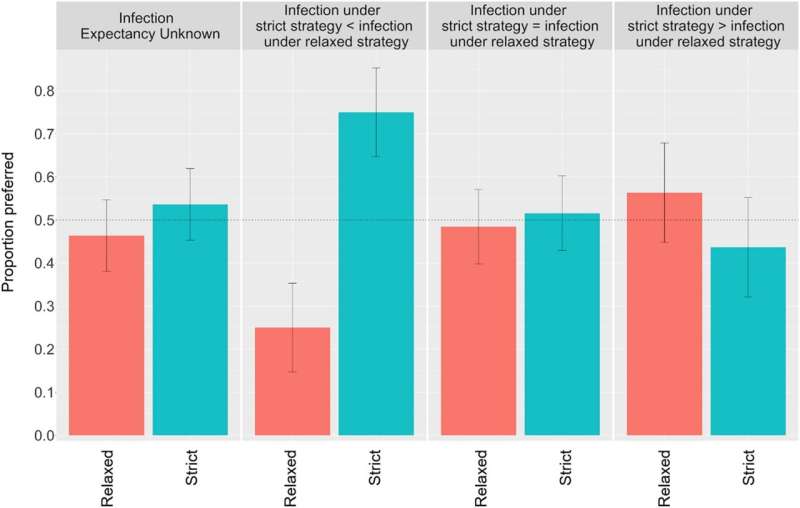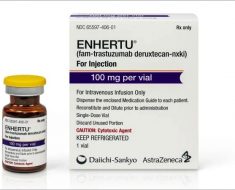
With recurring waves of the COVID-19 pandemic, a dilemma facing public health leadership is whether to provide public advice that is medically optimal, or advice that is less protective but is more likely to be followed. To provide insight, this group of NYU researchers examined and quantified public perceptions about the tradeoff between the stand-alone value of health behavior advice, and the advice’s adherence likelihood.
The paper, “Preferences and patterns of response to public health advice during the COVID-19 pandemic,” appears in Nature Scientific Reports.
In a series of studies about preference for public health leadership advice, the team queried 1,061 participants to choose between (1) strict advice that is medically optimal if adhered to but which is less likely to be broadly followed, and (2) “relaxed” advice, which is less medically effective but more likely to gain adherence—given varying infection expectancies.
In study one, results showed that when the projected infection rates for those who received “strict advice” were lower than for those who received “relaxed advice,” people preferred the strict advice. However, no significant preferences for either advice type was observed when the infection rates for strict advice were higher than for relaxed advice, when infections rates were unknown, or when there were
In study two, the researchers added a third advice type: seeking to evaluate the directive advice strategies (strict and relaxed) in relation to a strategy of informed decision-making, participants were informed about the risks, benefits and acceptable alternatives of both advice types.
The researchers found that informed choice, which combines information disclosure and recipient participation in decision-making, is preferred by advice recipients, particularly when information suggests that strict policies are not superior from an infection control perspective. Informed choice advice is both more informative and it offers greater freedom and volition to individuals, who have better knowledge of their own preferences.
Source: Read Full Article





